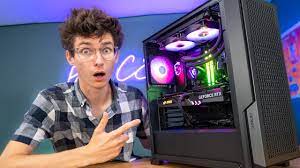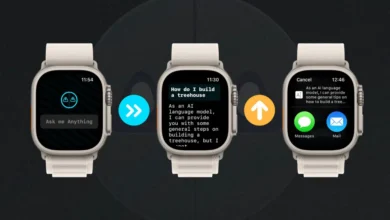Does Your Gaming PC Have a Bottleneck?

You’re in the midst of an intense gaming session, battling dragons, exploring galaxies, or racing through virtual landscapes. Suddenly, your gaming PC stutters, the frame rate drops, and frustration sets in. What could be causing this hiccup in your gaming nirvana? Enter the world of bottlenecks – the often overlooked culprits that can impact your gaming experience. Here we’ll discuss how to use a bottleneck calculator, why they’re important, how to identify them, and clarify a few common misconceptions.
Why Choose to Unravel the Bottleneck Mystery?
Before diving into the nitty-gritty of bottlenecks, you might be wondering why bother at all? Well, understanding and addressing bottlenecks in your gaming PC can significantly enhance your gaming experience. Bottlenecks occur when one component in your PC is holding back the performance of others, leading to suboptimal results. Identifying and resolving these bottlenecks ensures that your system runs smoothly, allowing you to make the most of your hardware and enjoy games as they were meant to be played.
Types of Bottlenecks
Bottlenecks come in various forms, and recognizing them is crucial for effective troubleshooting. Here are the primary types:
CPU Bottleneck
Occurs when the processor is unable to keep up with the demands of your graphics card or other components.
Common in CPU-intensive games and tasks.
GPU Bottleneck
Happens when your graphics card is underutilized because the CPU or other components are not providing data quickly enough.
Often observed in graphically demanding games.
RAM Bottleneck
Takes place when your system memory is insufficient for the tasks at hand, leading to slower performance.
Multitasking and resource-heavy applications may expose RAM bottlenecks.
Storage Bottleneck
Occurs when your storage drive (HDD or SSD) cannot keep up with the read and write demands of your system.
Loading times and data transfer speeds are affected.
Benefits of Addressing Bottlenecks
Now that you know the types, let’s delve into the benefits of addressing bottlenecks in your gaming PC:
Enhanced Performance
By resolving bottlenecks, you unlock the full potential of your components, resulting in smoother gameplay and faster response times.
Future-Proofing
Identifying and addressing bottlenecks ensures that your system is ready for future upgrades and new, more demanding games.
Optimal Resource Utilization
Each component works harmoniously without one holding back the others, maximizing the efficiency of your gaming PC.
Cost-Effective Solutions
Rather than splurging on new hardware, identifying bottlenecks allows you to make targeted upgrades, saving you money in the long run.
Steps to Identify and Tackle Bottlenecks
Now that you’re convinced of the importance, let’s go through the steps to identify and tackle bottlenecks in your gaming PC:
Use a Bottleneck Calculator
Tools like the bottleneck calculator can analyze your system’s components and highlight potential bottlenecks. Input your CPU, GPU, and RAM details to get insights.
Monitor Performance
Keep an eye on your PC’s performance metrics using software tools. Check CPU and GPU usage, RAM utilization, and storage performance during gaming sessions.
Update Drivers
Ensure that your graphics card and other hardware drivers are up to date. Outdated drivers can hinder performance and contribute to bottlenecks.
Adjust In-Game Settings
Experiment with in-game graphics settings to find the right balance between visual quality and performance. Lowering graphical demands can alleviate bottlenecks.
Upgrade Components
If the bottleneck calculator and performance monitoring reveal persistent issues, consider upgrading the bottlenecked component. Whether it’s a faster CPU, a more powerful GPU, or additional RAM, targeted upgrades can make a significant difference.
Optimize Storage
If your storage is identified as a bottleneck, consider upgrading to a faster SSD or optimizing your existing storage by cleaning up unnecessary files and defragmenting.
Conclusion
In the world of gaming PCs, bottlenecks are the silent disruptors that can hinder your experience. However, armed with knowledge and the right tools, you can identify and address these bottlenecks, unlocking the full potential of your gaming rig. Whether it’s a CPU struggling to keep up or a GPU yearning for more tasks, a well-balanced system is the key to an immersive gaming experience. So, take the time to understand your PC’s components, use tools like the bottleneck calculator, and ensure that every piece of hardware is pulling its weight. Your gaming sessions will thank you.
FAQs
Let’s address some common questions and misconceptions about bottlenecks:
What is a bottleneck calculator, and how does it work?
A bottleneck calculator is a tool that analyzes the compatibility and performance of your CPU and GPU. By inputting your hardware details, it estimates whether one component is bottlenecking the other, providing insights for potential upgrades.
Can software cause bottlenecks in gaming PCs?
While poorly optimized software can impact performance, bottlenecks are primarily hardware-related. Ensuring your drivers are up to date and optimizing in-game settings can mitigate software-related issues.
Do bottlenecks only affect gaming performance?
Bottlenecks can impact any resource-intensive task on your PC, including video editing, 3D rendering, and multitasking. Resolving bottlenecks improves overall system performance.
Is it necessary to upgrade all components if bottlenecks are identified?
No, targeted upgrades are more cost-effective. Identify the bottlenecked component using tools like the bottleneck calculator and upgrade only that part to achieve optimal results.
How often should I check for bottlenecks in my gaming PC?
Regularly monitor your system’s performance, especially after significant hardware or software changes. Checking for bottlenecks annually or before major game releases is a good practice.
Armed with this knowledge, you’re now equipped to tackle potential bottlenecks and ensure a seamless gaming experience on your PC. Happy gaming!
How accurate are bottleneck calculators?
Bottleneck calculators provide a general estimation based on the specifications you input. While they can give you a good starting point, it’s essential to consider real-world performance metrics and individual game requirements. Use them as a tool for guidance rather than a definitive answer.
Can overclocking help alleviate bottlenecks?
Overclocking, if done cautiously, can improve the performance of your components. It might help balance out minor bottlenecks, but it’s not a guaranteed solution. Be aware that overclocking can also lead to increased heat generation and potential stability issues.
Are there bottlenecks in pre-built gaming PCs, or is it mostly a concern for custom builds?
Bottlenecks can occur in both pre-built and custom gaming PCs. Pre-built systems are designed to work harmoniously, but as games and applications become more demanding, bottlenecks may arise. Custom builds, on the other hand, allow users to select specific components, making it crucial to ensure compatibility.
How can I prevent bottlenecks when building a new gaming PC?
When building a new gaming PC, research and choose components that complement each other in terms of performance. Ensure that the CPU, GPU, RAM, and storage are balanced for your intended use. Utilize bottleneck calculators during the planning phase to make informed decisions.
Are there any signs of bottlenecks other than frame rate drops during gaming?
Yes, other signs of bottlenecks include system freezes, longer loading times, and sluggish performance in tasks that should be handled smoothly. Regularly monitoring your system’s performance can help you identify these issues before they become pronounced during gaming sessions.
Can bottleneck issues be fixed through software updates alone?
While updating drivers and software can address certain performance issues, substantial bottlenecks often require hardware upgrades. Software updates may optimize performance to some extent, but if the hardware is outdated or mismatched, a more significant upgrade might be necessary.
Is it possible to have multiple bottlenecks in one system?
Yes, a gaming PC can experience multiple bottlenecks simultaneously. For example, a combination of a slow CPU, insufficient RAM, and an outdated GPU could collectively hinder overall system performance. Identifying and addressing each bottleneck is crucial for optimal results.
Can bottlenecks cause long-term damage to my PC?
Generally, bottlenecks themselves do not cause physical damage to your hardware. However, running components at their maximum capacity for extended periods can lead to increased heat and wear. Over time, this might contribute to a shorter lifespan for the affected components.
Are there any free tools to monitor system performance and identify bottlenecks?
Yes, several free tools, such as MSI Afterburner, HWMonitor, and Task Manager in Windows, allow you to monitor system performance. These tools can help you identify high usage or underutilization of components, giving you insights into potential bottlenecks.
Can bottlenecks be completely eliminated, or is some level of bottlenecking inevitable?
Complete elimination of bottlenecks is challenging as it depends on the specific demands of applications and games. However, through careful component selection, regular upgrades, and optimization, you can minimize the impact of bottlenecks, ensuring a more consistent and enjoyable gaming experience.



